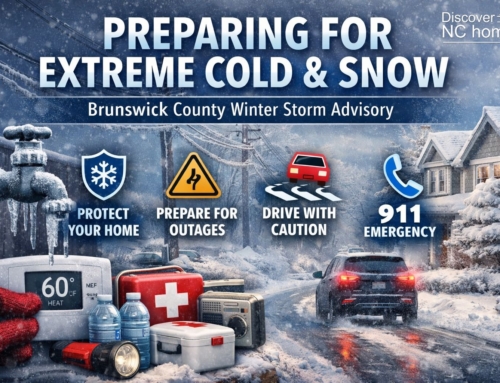Buying a home is an exciting journey, but one step that often causes unnecessary stress is the home inspection report. For many buyers, the language used in these reports can be overwhelming, making minor issues sound like major red flags. In this blog, we’ll break down key terms used in home inspections, what they really mean, and how you can navigate them with confidence.
Why Home Inspection Terms Can Sound Scary
Home inspectors are required to use specific wording for legal protection. Their job is to identify potential issues, but their choice of words sometimes makes minor problems seem more severe than they are.
For example, have you ever seen a home inspection report that recommends further evaluation by a licensed contractor? This phrase is used frequently, even for minor fixes that a qualified handyman could easily handle. Inspectors must include this language to protect themselves, but it doesn’t always mean you need to hire a specialist.
Common Terms That Can Be Misleading
🔹 GFCI Protection Required
A GFCI (Ground Fault Circuit Interrupter) outlet is a safety feature required near water sources, such as sinks or bathrooms. If your home inspection mentions missing GFCI protection, it may suggest hiring a licensed electrician. However, in many cases, an experienced handyman can install a GFCI outlet safely and effectively.
🔹 Mold or Mildew Found
One of the most alarming words in a home inspection report is “mold”, but not all mold is hazardous. In many cases, the issue is simply mildew or common fungi that can be cleaned easily. If you see this term, ask:
✔️ Is it dangerous mold or just surface mildew?
✔️ Does it require professional remediation, or can it be addressed with a simple cleaning?
🔹 Structural Concerns Identified
Structural issues sound serious, but not every mention of this in a report is a dealbreaker. Sometimes, it’s just minor settling or a cosmetic crack that doesn’t impact the home’s integrity. Before panicking, consult with your real estate agent or inspector for clarity.
How to Read Your Home Inspection Report With Confidence
✔️ Ask Questions: If something sounds severe, don’t assume the worst—get clarification from your inspector or real estate agent.
✔️ Understand the Severity: Some issues are urgent, while others are simple fixes.
✔️ Get a Second Opinion: If a report recommends hiring a specialist, ask if the issue truly requires a licensed professional or if a skilled handyman can handle it.
Final Thoughts
A home inspection report is meant to inform you, not scare you. By understanding the terminology and asking the right questions, you can confidently move forward in your home-buying journey.
At Discover NC Homes, we help buyers and sellers navigate every step of the real estate process. Whether you’re looking for your dream home or need expert advice, we’re here to help!
📞 Call us today: (910) 363-4387
🌐 Visit our website: www.DiscoverNCHomes.com
About Nolan Formalarie
Nolan Formalarie has been in the North Carolina Real Estate Industry for over 8 years and enjoys every minute of it. He is involved in every aspect of the industry including selling and purchasing residential property, home watch services, property management, association management and construction.





